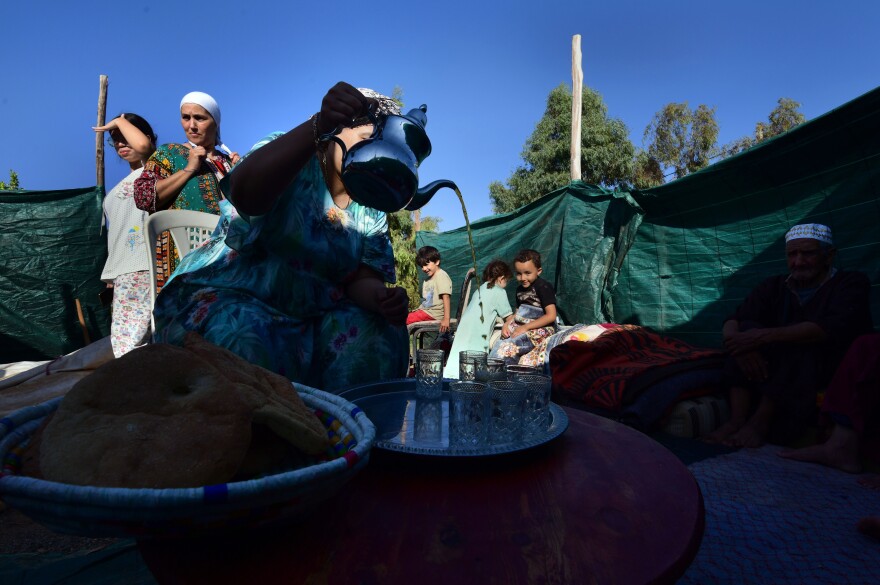ATLAS MOUNTAINS, Morocco — Boujemaa and Aicha Ounasser are going home to their birthplace in the Atlas Mountains — to see whether anything is left of it.
The brother and sister survived the Sept. 8 earthquake. They live in different cities, where they felt only tremors. But they grew up in Tnirte, a mountain village near the epicenter. They hadn't been back in six years.


Last week, they met up in Marrakech and hitchhiked up into the mountains, until the roads became impassable. Then they started walking alongside donkeys ferrying water and blankets over narrow dirt roads strewn with fallen stones.
"All of our memories, will they still be there?" asks Aicha, who's 74. She wears a bright blue robe and beige headscarf.
"Our elementary school! Our late grandmother's house!" her younger brother Boujemaa, 58, says. "I can't get my head around them all being gone."
On the village's outskirts, a cousin, Mohammed Ounasser, comes out to greet them — and shares his own staggering loss: His wife and two daughters are all dead.
Mohammed takes Aicha's hand and guides her uphill, pointing out damage. This once-idyllic hamlet, nestled in apple and apricot groves, is now just a giant pile of red clay bricks and debris.
More than 50 residents died underneath it, in a village of just a few hundred.
Boujemaa and Aicha spot the remains of their grandmother's house. It's destroyed.
"This was our paradise," Aicha says. "Everyone in this village is like family to me, and our family is now shattered."
"It's a big wound that will never heal," she says.
Survivors in the foothills give thanks that they're alive
Nearly every building is cracked or crumbling in the town of Amizmiz, population about 15,000, in the foothills of the Atlas Mountains. It has nevertheless become a staging area for aid convoys heading uphill to villages like Tnirte that are even more devastated.

In Amizmiz, Imane Erbeen points to her shattered second-floor window. A pink hoodie sweatshirt dangles from exposed rebar.
"We were sitting there, and we were smiling," she recalls. "Then suddenly, we were screaming."


Erbeen, 18, was home from college on summer vacation, having a slumber party with her younger sister and two cousins on the night of Sept 8. They were in their pajamas, giggling over Instagram posts, when the 6.8 magnitude earthquake hit.
The girls fled into the dark street as the house caved in behind them. Erbeen's phone is still in the wreckage somewhere. She left without shoes.
Her home's facade was sheared off, like a dollhouse. The next-door neighbors' house fell down completely. The bodies of a pregnant woman and her mother were pulled out the next day.
"They were friends of my grandmother. They used to come to our house," Erbeen says. "We ate together, smiled together, laughed."


For now, an olive grove on land owned by Erbeen's grandfather on the outskirts of town has become Erbeen's temporary new home, with about 30 of her relatives. By day, they shelter under a row of solar panels in a field. At night, they roll out blankets.
She was supposed to go back to college last week, after summer vacation.
"I don't think about the future right now. I just want my family to be OK, you know?"
As night falls, this family who lost everything makes tea under the stars — and gives thanks that they're alive.
Copyright 2023 NPR. To see more, visit https://www.npr.org.




